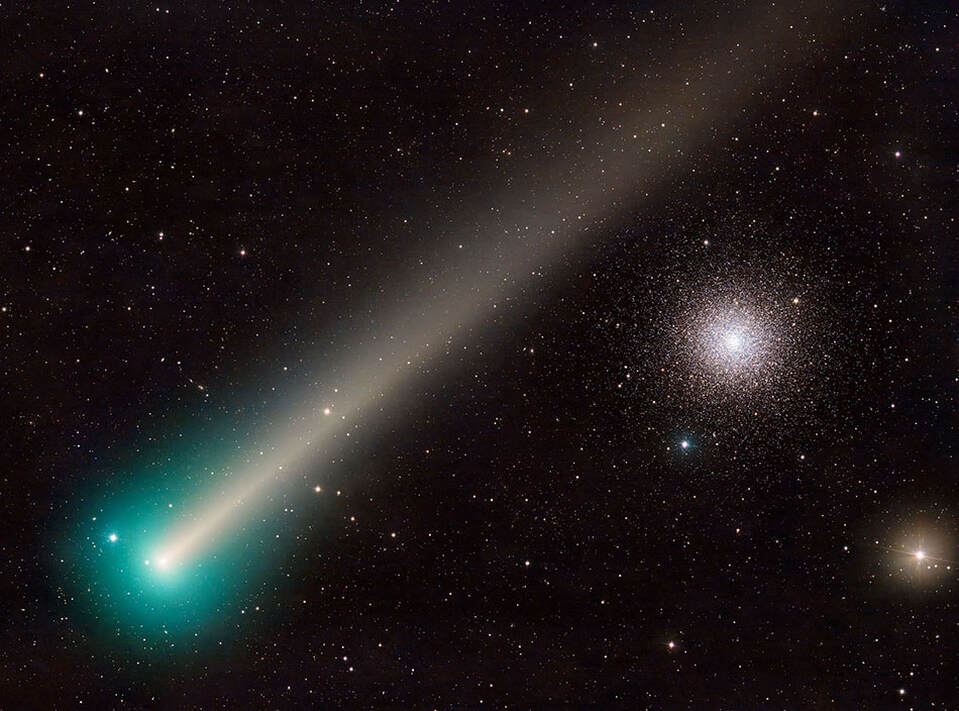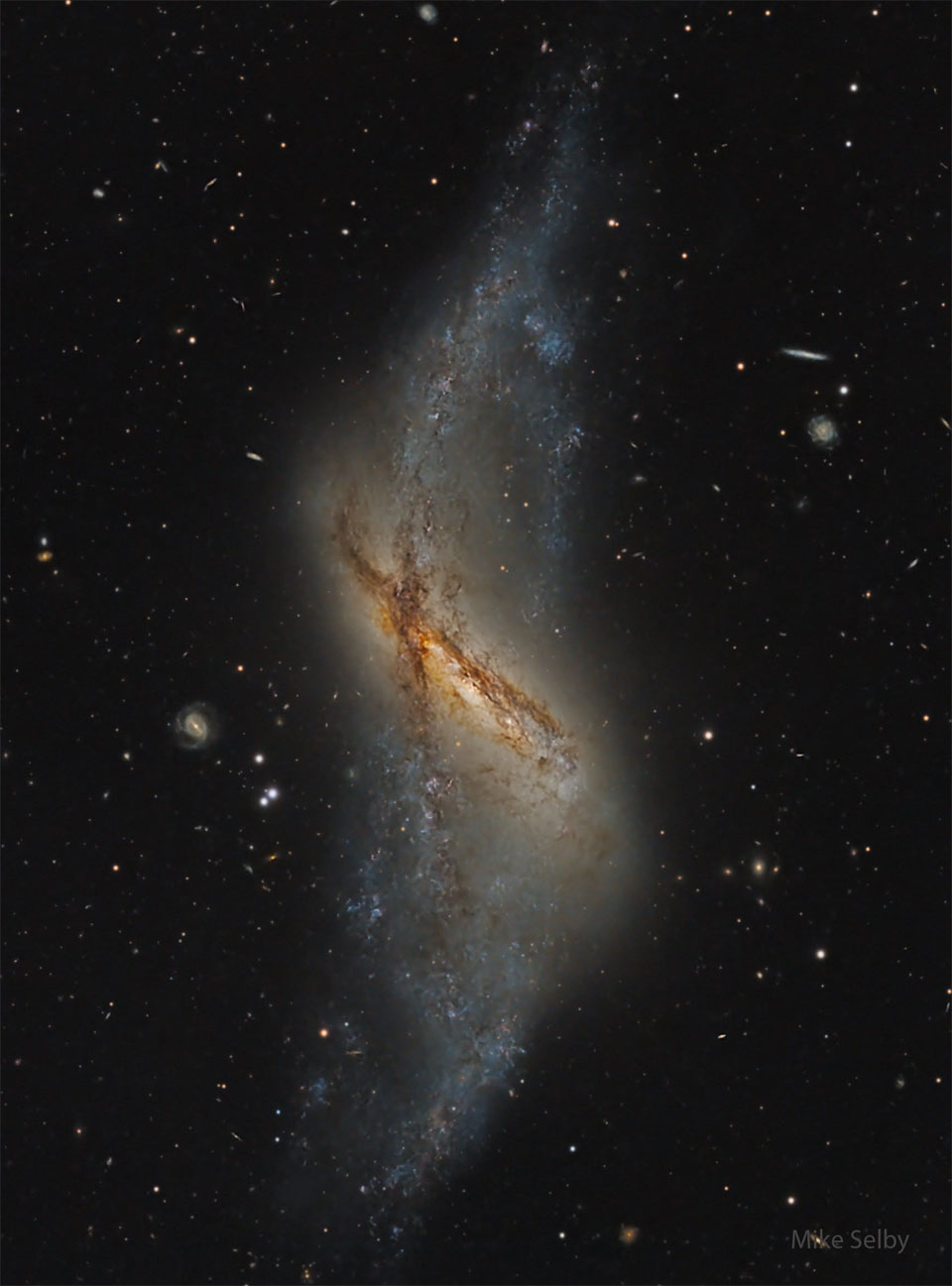Blog
C/2021 A1 (Leonard) was a long period comet that was discovered by G. J. Leonard at the Mount Lemmon Observatory on 3 January 2021 (a year before perihelion) when the comet was 5 AU(750 million km) from the Sun. It had a retrograde orbit. The nucleus was about 1 km (0.6 miles) across. It came within 4 million km (2.5 million mi) of Venus, the closest-known cometary approach to Venus.

Édith Giovanna Gassion (19 December 1915 – 10 October 1963), known as Édith Piaf ), was a French entertainer best known for performing songs in the cabaret and modern chanson genres. She is widely regarded as France’s greatest popular singer and one of the most celebrated performers of the 20th century.
Piaf’s music was often autobiographical, and she specialized in chanson réaliste and torch ballads about love, loss and sorrow. Her most widely known songs include “La Vie en rose” (1946), “Non, je ne regrette rien” (1960), “Hymne à l’amour” (1949), “Milord” (1959), “La Foule” (1957), “L’Accordéoniste” (1940), and “Padam, padam…” (1951).
Having begun her career touring with her father at age fourteen, her fame increased during the German occupation of France and in 1945, Piaf’s signature song, “La Vie en rose” (‘life in pink‘) was published. She became France’s most popular entertainer in the late 1940s, also touring Europe, South America and the United States, where her popularity led to eight appearances on The Ed Sullivan Show.
Piaf continued to perform, including several series of concerts at the Paris Olympia music hall, until a few months before her death in 1963 at age 47. Her last song, “L’Homme de Berlin”, was recorded with her husband in April 1963. Since her death, several documentaries and films have been produced about Piaf’s life as a touchstone of French culture.
more...Kermit Ruffins (born December 19, 1964) is an American jazz trumpeter, singer, and composer from New Orleans. He has been influenced by Louis Armstrong and Louis Jordan and says that the highest note he can hit on trumpet is a high C. He often accompanies his songs with his own vocals. Most of his bands perform New Orleans jazz standards though he also composes many of his own pieces. Jon Pareles of The New York Times wrote, “Mr. Ruffins is an unabashed entertainer who plays trumpet with a bright, silvery tone, sings with off-the-cuff charm and never gets too abstruse in his material.”
more...Leonard “Lenny” White III (December 19, 1949 – present NY,NY) is a fusion jazz drummer best known for his innovative contributions to the genre, in which he set musical standards that continue to influence musicians today. Throughout the course of his career, White was a member of the band Return to Forever led by Chick Corea in the 1970s, and he has played with the likes of Miles Davis and Al Di Meola. White has been called “one of the founding fathers of jazz fusion”.
Though most popular in the earlier years of his career, White has received various awards, including three Grammys and one Latin Grammy, and has continued to receive recognition in more recent years. His song Algorithm Takedown won Best Song at the Cannes World Film Festival in 2023.
more...Robert Henry Timmons (December 19, 1935 – March 1, 1974 Philadelphia, PA) was an American jazz pianist and composer. He was a sideman in Art Blakey‘s Jazz Messengers for two periods (July 1958 to September 1959; February 1960 to June 1961), between which he was part of Cannonball Adderley‘s band. Several of Timmons’ compositions written when part of these bands – including “Moanin’“, “Dat Dere“, and “This Here” – enjoyed commercial success and brought him more attention. In the early and mid-1960s he led a series of piano trios that toured and recorded extensively.
Timmons was strongly associated with the soul jazz style that he helped initiate. This link to apparently simple writing and playing, coupled with drug and alcohol addiction, led to a decline in his career. Timmons died, aged 38, from cirrhosis. Several critics have commented that his contribution to jazz remains undervalued.
more...
Henry Roeland “Roy” Byrd (December 19, 1918 – January 30, 1980), better known as Professor Longhair or “Fess” for short, was an American singer and pianist who performed New Orleans blues. He was active in two distinct periods, first in the heyday of early rhythm and blues and later in the resurgence of interest in traditional jazz after the founding of the New Orleans Jazz and Heritage Festival in 1970. His piano style has been described as “instantly recognizable, combining rumba, mambo, and calypso”.
Music journalist Tony Russell (in his book The Blues: From Robert Johnson to Robert Cray) wrote that “The vivacious rhumba-rhythmed piano blues and choked singing typical of Fess were too weird to sell millions of records; he had to be content with siring musical offspring who were simple enough to manage that, like Fats Domino or Huey “Piano” Smith. But he is also acknowledged as a father figure by subtler players like Allen Toussaint and Dr. John.
more...Solomon Hoʻopiʻi Kaʻaiʻai (/ˌhoʊoʊˈpiːi/ hoh-oh-PEE-ee Hawaiian pronunciation: [ˌhoʔoˈpiʔi]; 1902 – November 16, 1953) was a Native Hawaiian lap steel guitarist. A virtuoso, he was one of the most famous original Hawaiian steel guitarists, along with Joseph Kekuku, Frank Ferera, Sam Ku West and “King” Bennie Nawahi.
more...Keith Richards (born 18 December 1943) is an English musician, songwriter, singer and record producer who is an original member, guitarist, secondary vocalist, and co-principal songwriter of the Rolling Stones. His songwriting partnership with the band’s lead vocalist Mick Jagger is one of the most successful in history. His career spans over six decades, and his guitar playing style has been a trademark of the Rolling Stones throughout the band’s career. Richards gained press notoriety for his romantic involvements and illicit drug use, and he was often portrayed as a countercultural figure. First professionally known as Keith Richard, by the early 1970s he had fully asserted his family name.
Richards was born in and grew up in Dartford, Kent. He studied at the Dartford Technical School and Sidcup Art College. After graduating, Richards befriended Jagger, Bill Wyman, Charlie Watts, Ian Stewartand Brian Jones and joined the Rolling Stones. As a member of the Rolling Stones, Richards also sings lead on some Stones songs. Richards typically sings lead on at least one song a concert, including “Happy“, “Before They Make Me Run“, and “Connection“. Outside of his career with the Rolling Stones, Richards has also played with his own side-project, The X-Pensive Winos. He also appeared in two Pirates of the Caribbean films as Captain Teague, father of Jack Sparrow, whose look and characterisation was inspired by Richards himself.
In 1989, Richards was inducted into the Rock and Roll Hall of Fame and in 2004 into the UK Music Hall of Fame with the Rolling Stones. Rolling Stone magazine ranked him fourth on its list of 100 best guitarists in 2011. In 2023, Rolling Stone’s ranking was 15th. The magazine lists fourteen songs that Richards wrote with Jagger on its “500 Greatest Songs of All Time” list.
more...This rare structure is known as a polar ring galaxy, and it seems to have two different rings of stars. In this galaxy, NGC 660, one ring of bright stars, gas, and dark dust appears nearly vertical, while another similar but shorter ring runs diagonally from the upper left. How polar ring galaxies obtain their striking appearance remains a topic of research, but a leading theory holds that it is usually the result of two galaxies with different central ring planes colliding. NGC 660 spans about 50,000 light years and is located about 40 million light years away toward the constellation of the Fish (Pisces). The featured image was captured recently from Observatorio El Sauce in Chile.

Bryan James “Chas” Chandler (18 December 1938 – 17 July 1996) was an English musician, record producer and manager, best known as the original bassist in The Animals, for which he was inducted into the Rock and Roll Hall of Fame in 1994. He also managed the band Slade, and Jimi Hendrix, about whom he was regularly interviewed until his death in 1996.
more...Ishmael Wadada Leo Smith (born December 18, 1941) is an American trumpeter and composer, working primarily in the field of creative music. He was one of three finalists for the 2013 Pulitzer Prize for Music for Ten Freedom Summers, released on May 22, 2012.
Smith was born in Leland, Mississippi, United States. He started out playing drums, mellophone, and French horn before he settled on the trumpet. He played in various R&B groups and, by 1967, became a member of the AACM and co-founded the Creative Construction Company, a trio with Leroy Jenkins and Anthony Braxton. In 1971, Smith formed his own label, Kabell. He also formed another band, the New Dalta Ahkri, with members including Henry Threadgill, Anthony Davisand Oliver Lake.
more...
Connie Curtis Crayton (December 18, 1914 – June 25, 1985), known as Pee Wee Crayton, was an American R&B and blues guitarist and singer.
Crayton was born in Rockdale, Texas. He began playing guitar seriously after moving to California in 1935, later settling in Oakland. While there, he absorbed the music of T-Bone Walker but developed his own unique approach. His aggressive playing contrasted with his smooth vocal style and was copied by many later blues guitarists.
In 1948, he signed a recording contract with Modern Records. One of his first recordings was the instrumental “Blues After Hours“, which reached number 1 on the Billboard R&B chart late that year. Its B-side, the pop ballad “I’m Still in Love with You”, and the quicker “Texas Hop” are good examples of his work.
more...Harold de Vance Land (December 18, 1928 – July 27, 2001) was an American hard bop and post-boptenor saxophonist. Land developed his hard bop playing with the Max Roach/Clifford Brown band into a personal, modern style, often rivalling Clifford Brown’s instrumental ability with his own inventive and whimsical solos. His tone was strong and emotional, yet hinted at a certain introspective fragility.
Land was born in Houston, Texas, United States and grew up in San Diego, California. He started playing at the age of 16. He made his first recording as the leader of the Harold Land All-Stars, for Savoy Recordsin 1949. In 1954, he joined the Clifford Brown/Max Roach Quintet, with whom he was at the forefront of the hard-bop/bebop movement. The Land family moved from San Diego to Los Angeles, in 1955. There he played with Curtis Counce, led his own groups, and co-led groups with Bobby Hutcherson, Blue Mitchell, and Red Mitchell. From the 1970s onwards, his style showed the influence of John Coltrane.
more...Eddie “Cleanhead” Vinson (born Edward L. Vinson Jr.; December 18, 1917 – July 2, 1988) was an American jump blues, jazz, bebop and R&B alto saxophonist and blues shouter. He was nicknamed “Cleanhead” after an incident in which his hair was accidentally destroyed by lye contained in a hair-straightening product, necessitating shaving it off; enamoured of the look, Vinson maintained a shaved head thereafter. Music critic Robert Christgau has called Vinson “one of the cleanest, and nastiest, blues voices you’ll ever hear.”
Vinson was born in Houston, Texas. He was a member of the horn section in Milton Larkin‘s orchestra, which he joined in the late 1930s. At various times, he sat next to Arnett Cobb, Illinois Jacquet, and Tom Archia, while other members of the band included Cedric Haywood and Wild Bill Davis. After exiting Larkin’s employment in 1941, Vinson picked up a few vocal tricks while on tour with bluesman Big Bill Broonzy. He then moved to New York and joined the Cootie Williams Orchestra from 1942 to 1945, recording such tunes as “Cherry Red”. Vinson struck out on his own in 1945, forming his own large band, signing with Mercury Records, and enjoying a double-sided hit in 1947 with his R&B chart-topper “Old Maid Boogie”, and the song that would prove to be his signature number, “Kidney Stew Blues”.
more...
